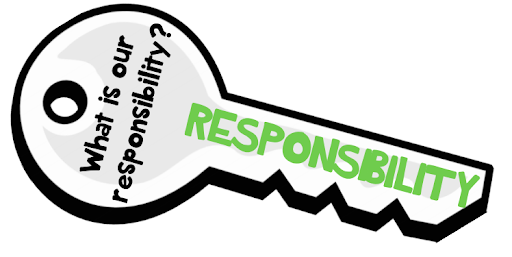PE will be taught in school on a Wednesday for which your child will need to wear their PE kit – please make sure all items are named. This term, we are lucky to have Mr Collins, a PE specialist, teaching our lessons.
Welcome to Oliver Jeffers Class!
Our class has been named after children’s author and illustrator Oliver Jeffers. He was born in Australia in 1977. He is the writer behind stories such as, ‘How to Catch a Star’, ‘Lost and Found’ and ‘Stuck’.
Our central idea across the next two terms will be, “Our environment is ever-changing and our decisions may impact the natural world.” We can use this to help us become familiar with our wider community and the world around us.


Our central idea will be divided into 3 key lines of inquiry as outlined below:
The Natural World (Causation)
How Living Things Transform (Form)
How our actions impact the environment. (Responsibility)
International Baccalaureate: Primary years programme
As part of the IB PYP, we have the six transdisciplinary themes that help teachers to develop a programme of inquiry into these important concepts. Each term, we focus on one of these themes.
In Reception this year we will explore 5 Transdisciplinary Themes:
- Who We Are
- How We Organise Ourselves
- Where We Are in Place and Time
- How We Express Ourselves
- How the World Works
PE
Reading
Children will begin to bring home reading materials to share with you at home.
Initially, this will include a picture book to share with your child and phonics resources linked to the sound we are learning in school.
As we progress and your child develops more confidence in reading, they will begin to bring home a reading book with words.
These books will be changed in school on a Tuesday and a Thursday. Please read the books more than once -there is evidence to show that rereading materials is beneficial as children learn to read as it increases familiarity and develops their fluency (reading without sounding out) and comprehension skills.
Please spend at least 5 minutes per day reading with your child. Reading at an early age is one of the biggest influences on future academic success and reading at home greatly benefits your child.
What can you do at home to help?
- Tapestry App: Through Tapestry, you will have the opportunity to view your child’s learning at school. We would really love parents to also upload observations from home, so that we can have a holistic approach towards your child’s learning journey.
- Homework: This module, children will receive a short practical Maths task alongside their Phonics and Reading on a Friday.
- Reading: We would encourage the children to read for at least 5 to 10 minutes a day. This can be a mixture of their school reading book and books/comics that they already have at home. Once your child has read please record this in their reading log so that we can celebrate this with them. We will change books on a Monday, Wednesday and Friday. Please can reading books always be kept in your child’s zipped folder and brought to school each day.
- PE will be taught on a Monday. Please make sure your child comes into school in their PE kit. Please note that earrings should be taken out at home or taped over for PE.
We look forward to working with you and your child over this academic year.
Miss Hartung and Mrs Sherman
Knowledge Organisers
who we are
Central Idea:
Building relationships can help us grow and learn together
Line of Inquiry 1:
What is a relationship (form)
Line of Inquiry 2:
How do relationships work (function)
Line of Inquiry 3:
The similarities and differences between relationships (connection)
Core Texts:
- Lulu’s Nana Visits
- One Little Word
Understanding the World:
- Name people in my immediate family.
- Describe the appearance of people I know.
- Share stories about people in my life using descriptive language.
- Discuss roles and responsibilities of family members.
- Understand what personal information is.
Expressive Arts and Design:
- Use line and shape to represent images.
- Express simple emotions using colour in artwork.
Phonics:
-
s, a , t , p , i , n , c , k
Maths:
- Matching
- Sorting
- Comparing
RE:
- Which stories are special and why?
PE:
- Active play, developing basic skills, following instructions, using equipment safely.
Where we are in place and time
Central Idea:
Discoveries have impacted our understanding of the world
Line of Inquiry 1:
Discoveries overtime (form)
Line of Inquiry 2:
How our knowledge of the world has developed overtime (change)
Line of Inquiry 3:
How people from the past have shaped our view of the world (perspective)
Core Texts:
- The Girl and the Dinosaur
- Martha Maps It Out
Understanding the World:
- Talk about past and present events building understanding of chronology.
- Learning about key discoveries – dinosaurs, moon landing and other inventions.
- Recognising that a range of technology is used in the world around us.
Expressive Arts and Design:
- Explore colours and colour mixing.
- Creating art linked to key celebrations such as Diwali, Bonfire Night and Christmas.
Phonics:
-
e , h , r , m , d , o , g , u , l , ll , f , ff
Maths:
- Exploring the numbers 1 – 5.
RE:
- Which stories are special and why?
PE:
- Active play, developing basic skills, following instructions, using equipment safely.
How We Organise Ourselves
Central Idea:
Organisations exist to improve communities.
Line of Inquiry 1:
How does our community work (Function)
Line of Inquiry 2:
How do communities work together (Connection)
Line of Inquiry 3:
How have communities changed overtime (Change)
Core Texts:
- Doctor Saurus
- The Spaces in Between
Understanding the World:
- Describing the local environment, finding places that are important to us, talking about roles and relationships between people around us.
- Having an understanding of communities in other places around the world – linked to this, learning about Chinese New Year.
- Knowing how places were different in the past and having an understanding of how roles have changed – in particular, exploring the emergency services in the past and how this has changed overtime.
Expressive Arts and Design:
- Experimenting with simple instruments and singing in a group.
- Designing what we would like to create.
- Making sculptures from different materials.
Phonics:
-
Phonics International Unit 2+ and 2b
Maths:
- Composition of numbers.
- Mass and capacity.
RE:
-
Which places are special and why?
PE:
-
Developing ball skills, working on different movements.
How We Express Ourselves
Central Idea:
Creativity brings our ideas to life.
Line of Inquiry 1:
Telling stories and creating art helps us to express ourselves (Form)
Line of Inquiry 2:
Our own and other cultures inspire creativity (Perspective)
Line of Inquiry 3:
Sharing our ideas connects us to each other (Connection)
Core Texts:
- The Colour Monster
- Journey
Understanding the World:
- Exploring different materials and their uses.
- Learning about a range of cultures and how they inspire us.
- Important festivals from different religions – Holi Festival, Eid, Easter.
- Exploring personal histories, culture and places we have been.
- Using maps, globes and atlases.
Expressive Arts and Design:
- Using role play to tell familiar stories.
- Using the story of the Colour Monster to help us explore emotions.
- Colour mixing and creating puppets.
- Learning about printing techniques.
Exploring the works of famous artists – Yayoi Kusama, Jackson Pollock, Pablo Picasso.
Phonics:
-
ai, ay, oa, ow, w, ie, igh, le, ee, or
Maths:
- Length, height and time.
- Building 9 and 10.
RE:
-
Which times are special and why?
PE:
-
Complete PE: Jumping
How the world works
Central Idea:
The Natural World Transforms Overtime.
Line of Inquiry 1:
The Natural World (Form)
Line of Inquiry 2:
How Living Things Transform (Causation)
Line of Inquiry 3:
How Our Actions Impact the Environment (Responsibility)
Core Texts:
- The Very Hungry Caterpillar
- The Bog Baby
Understanding the World:
- How plants grow and change.
- Animal lifecycles, including caterpillars to butterflies.
- Habitats – where animals live and what they need to thrive.
- Seasons – how our environment changes throughout the year.
Expressive Arts and Design:
- Sculpture – making sculptures out of man-made materials as well as making sculptures from clay
- Exploring the work of Andy Goldsworthy.
Personal, Social, Emotional Development:
- Making healthy choices, linking with the story of The Very Hungry Caterpillar, trying new fruits.
- Developing food preparation and cooking skills.
Phonics:
-
z, zz, wh, ea (ee), ea (e), se, ze
Maths:
- Numbers to 20 and beyond.
- 2D and 3D shapes.
- Sharing and grouping
RE:
-
What is special about our world?
PE:
-
Complete PE: Ball skills



